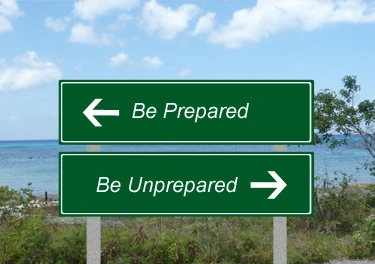Don’t Forget These Deductions

Whether you’re filing your business taxes as a self-employed business owner for the first time or the 20th, there are certain deductions that can save you thousands of dollars a year. Here, we’ll walk you through the most common — and not so common — tax deductions for the self-employed, and some expenses that are not deductible.
What is a tax deduction?
If you’re filing your self-employed taxes for the first time, you’re likely wondering what exactly a tax deduction is. Essentially, a tax deduction is an amount of money the Internal Revenue Service allows you to subtract from your Adjusted Gross Income (AGI) in order to reduce your taxable income. In some cases, taking enough tax deductions can place you in a lower income tax bracket, substantially reducing the amount of taxes you pay annually.
For an expense to be deductible these expenses must be seen as “ordinary and necessary” in the operation of your business. These can range from advertising to utilities and everything in between. Remember, however, that you can only deduct the business-use portion of the expense you’re claiming.
Here are some of the most common deductions for the self-employed:
- Business Insurance
Insurance coverage intended to protect your business (fire, theft, flood, property, malpractice, errors and omissions, general liability, workers’ compensation) - Car Expenses
The business portion of your actual car expenses (gas, insurance, registration, repairs and maintenance), or public transit expenses (buses) if you use local transportation
- Depreciation and Section 179
Depreciation expense on business assets (office equipment, tools, furniture, cars). Note: The IRS requires you to use Form 4562 to claim these deductions. - Dues and Publications Expense
The cost of specialized magazines, journals, and books directly related to your business is tax deductible as supplies and materials, as are dues or fees for certain professional membership organizations
- Education Deduction
Any education expenses you want to deduct must be related to maintaining or improving your skills for your existing business.
- Home Office Deduction
Expenses related to a home office ( business portion of rent, utilities, repairs, insurance, home mortgage interest). You’ll need to fill out a Form 8829, unless you use the simplified method - Interest Expense
Interest you pay on loans, mortgages and credit cards are all deductible if they are business related
- Meals
Meals that you had with a client and during which you engaged in business discussions, or meals incurred while traveling on out-of-town business trips. Fifty percent of business meals is deductible - Office Expenses
Office expenses (cleaning services for your office, general office maintenance) that don’t have a separate category
- Retirement Plans Contributions Deduction
Contributions to simplified employee pension individual retirement accounts (SEP- IRAs), savings incentive match plan for employees (SIMPLE) IRAs, and solo 401(k)s reduce your tax bill now and help with retirement later
- Software
Adobe, Microsoft Office, Calendly- any of these computer software applications used for the business can be deductible as ordinary and necessary for your business
- Supplies
Any supplies that you use and replace (cleaning supplies if you clean homes, office supplies like pens or printer ink, hot/cold bags if you do delivery)
- Travel
Travel costs related to business trips (lodging, airfare, rental cars, local transportation). The travel must be overnight, away from your residence and primarily for business
- Other Expenses
Any other business expenses that are ordinary and necessary (education to improve skills for your job, banking fees, association dues, business gifts, industry magazines)
Expenses that are Non-Deductible:
- Health insurance, auto insurance, disability insurance
- Expenses other than Parking/Tolls if you use the standard mileage rate deduction
- Car depreciation if using the standard mileage rate
- Home office expenses if you use the simplified method
- Meals for yourself on lunch breaks, dues for athletic clubs
- Personal expenses
- Political Contributions
- Rent expenses on any property you own
- Commuting Expenses
- Certain gifts
- Travel expenses for extra travelers
Keep Supporting Documentation
Supporting documents include sales slips, paid bills, invoices, receipts, deposit slips, and canceled checks. These documents contain the information you need to record in your books. It is important to keep these documents because they support the entries on your tax return. You should keep them in an orderly fashion and in a safe place. For instance, organize them by year and type of income or expense.
While it may seem like a frustrating and time-consuming process, tracking your business expenses and claiming them as deductions can save you a large amount of money when it comes time to file taxes.
It is important to note that tax laws are constantly changing, and these provisions may be modified or extended at any point before 2025. Therefore, reviewing the most common self-employed taxes and deductions is necessary to keep you updated on any changes required to your quarterly estimated tax payments.
And always seek out the assistance of a tax expert who can keep you updated on changing tax laws, keep you out of trouble with the IRS and help ensure you are maximizing your business deductions.



